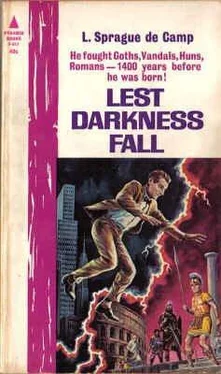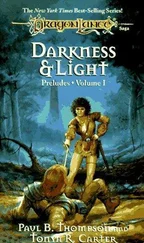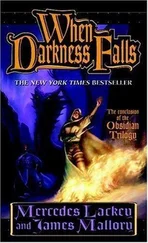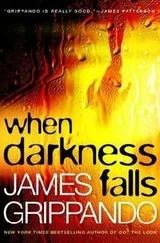L. Camp - Lest Darkness Fall
Здесь есть возможность читать онлайн «L. Camp - Lest Darkness Fall» весь текст электронной книги совершенно бесплатно (целиком полную версию без сокращений). В некоторых случаях можно слушать аудио, скачать через торрент в формате fb2 и присутствует краткое содержание. Год выпуска: 1941, Жанр: Альтернативная история, на английском языке. Описание произведения, (предисловие) а так же отзывы посетителей доступны на портале библиотеки ЛибКат.
- Название:Lest Darkness Fall
- Автор:
- Жанр:
- Год:1941
- ISBN:нет данных
- Рейтинг книги:4 / 5. Голосов: 1
-
Избранное:Добавить в избранное
- Отзывы:
-
Ваша оценка:
- 80
- 1
- 2
- 3
- 4
- 5
Lest Darkness Fall: краткое содержание, описание и аннотация
Предлагаем к чтению аннотацию, описание, краткое содержание или предисловие (зависит от того, что написал сам автор книги «Lest Darkness Fall»). Если вы не нашли необходимую информацию о книге — напишите в комментариях, мы постараемся отыскать её.
Lest Darkness Fall — читать онлайн бесплатно полную книгу (весь текст) целиком
Ниже представлен текст книги, разбитый по страницам. Система сохранения места последней прочитанной страницы, позволяет с удобством читать онлайн бесплатно книгу «Lest Darkness Fall», без необходимости каждый раз заново искать на чём Вы остановились. Поставьте закладку, и сможете в любой момент перейти на страницу, на которой закончили чтение.
Интервал:
Закладка:
A man at the next table asked Padway suddenly: "What's that stuff you and old one-eye have been drinking, friend?"
"Oh, just a foreign drink called brandy," said Padway uneasily.
"That's right, you're a foreigner, aren't you? I can tell by your accent." He screwed up his face, and then said: "I know; you're a Persian. I know a Persian accent."
"Not exactly," said Padway. "Farther away than that."
"That so? How do you like Rome?" The man had very large and very black eyebrows.
"Fine, so far," said Padway.
"Well, you haven't seen anything," said the man. "It hasn't been the same since the Goths came." He lowered his voice conspiratorially: "Mark my words, it won't be like this always, either!"
"You don't like the Goths?"
"No! Not with the persecution we have to put up with!"
"Persecution?" Padway raised his eyebrows.
"Religious persecution. We won't stand for it forever."
"I thought the Goths let everybody worship as they pleased."
"That's just it! We Orthodox are forced to stand around and watch Arians and Monophysites and Nestorians and Jews going about their business unmolested, as if they owned the country. If that isn't persecution, I'd like to know what is!"
"You mean that you're persecuted because the heretics and such are not?"
"Certainly, isn't that obvious? We won't stand—What's your religion, by the way?"
"Well," said Padway, "I'm what in my country is called a Congregationalism That's the nearest thing to Orthodoxy that we have."
"Hm-m-m. We'll make a good Catholic out of you, perhaps. So long as you're not one of these Maronites or Nestorians—"
"What's that about Nestorians?" said Thomasus, who had returned unobserved. "We who have the only logical view of the nature of the Son—that He was a man in whom the Father indwelt—"
"Nonsense!" snapped Eyebrows. "That's what you expect of half-baked amateur theologians. Our view—that of the dual nature of the Son—has been irrefutably shown—"
"Hear that, God? As if one person could have more than one nature—"
"You're all crazy!" rumbled a tall, sad-looking man with thin yellow hair, watery blue eyes, and a heavy accent. "We Arians abhor theological controversy, being sensible men. But if you want a sensible view of the nature of the Son—"
"You're a Goth?" barked Eyebrows tensely.
"No, I'm a Vandal, exiled from Africa. But as I was saying"—he began counting on his fingers—"either the Son was a man, or He was a god, or He was something in between. Well, now, we admit He wasn't a man. And there's only one God, so He wasn't a god. So He must have been—"
About that time things began to happen too fast for Padway to follow them all at once. Eyebrows jumped up and began yelling like one possessed. Padway couldn't follow him, except to note that the term "infamous heretics" occurred about once per sentence. Yellow Hair roared back at him, and other men began shouting from various parts of the room: "Eat him up, barbarian!"
"This is an Orthodox country, and those who don't like it can go back where they—"
"Damned nonsense about dual natures! We Monophysites—"
"I'm a Jacobite, and I can lick any man in the place!"
"Let's throw all the heretics out!"
"I'm a Eunomian, and I can lick any two men in the place!"
Padway saw something coming and ducked, the mug missed his head by an inch and a half. When he looked up the room was a blur of action. Eyebrows was holding the self-styled Jacobite by the hair and punching his face; Yellow Hair was swinging four feet of bench around his head and howling a Vandal battle song. Padway hit one champion of Orthodoxy in the middle; his place was immediately taken by another who hit Padway in the middle. Then they were overborne by a rush of men.
As Padway struggled up through the pile of kicking, yelling humanity, like a swimmer striking for the surface, somebody got hold of his foot and tried to bite it off. As Padway was still wearing a pair of massive and practically indestructible English walking shoes, the biter got nowhere. So he shifted his attack to Padway's ankle. Padway yelped with pain, yanked his foot free, and kicked the biter in the face. The face yielded a little, and Padway wondered whether he'd broken a nose or a few teeth. He hoped he had.
The heretics seemed to be in a minority, that shrank as its members were beaten down and cast forth into darkness. Padway's eye caught the gleam of a knife blade and he thought it was well past his bedtime. Not being a religious man, he had no desire to be whittled up in the cause of the single, dual, or any other nature of Christ. He located Thomasus the Syrian under a table. When he tried to drag him out, the banker shrieked with terror and hugged the table leg as if it were a woman and he a sailor who had been six months at sea. Padway finally got him untangled.
The yellow-haired Vandal was still swinging his bench. Padway shouted at him. The man couldn't have understood in the uproar, but his attention was attracted, and when Padway pointed at the door he got the idea. In a few seconds he had cleared a path. The three stumbled out, pushed through the crowd that was beginning to gather outside, and ran. A yell behind them made them run faster, until they realized that it was Ajax, and slowed down to let him catch up.
They finally sat down on a park bench on the edge of the Field of Mars, only a few blocks from the Pantheon, where Padway had his first sight of post-Imperial Rome. Thomasus, when he got his breath, said: "Martinus, why did you let me drink so much of that heathen drink? Oh, my head! If I hadn't been drunk, I'd have had more sense than to start a theological argument."
"I tried to slow you down," said Padway mildly, "but you—"
"I know, I know. But you should have prevented me from drinking so much, forcibly if necessary. My head! What will my wife say? I never want to see that lousy barbarian drink again! What did you do with the bottle, by the way?"
"It got lost in the scuffle. But there wasn't much left in it anyway." Padway turned to the Vandal. "I guess I owe you some thanks for getting us out of there so quickly."
The man pulled his drooping mustache. "I was glad to do it, friend. Religious argument is no occupation for decent people. Permit me; my name is Fritharik Staifan's son." He spoke slowly, fumbling for words occasionally. "Once I was counted a man of noble family. Now I am merely a poor wanderer. Life holds nothing for me any more." Padway saw a tear glistening in the moonlight.
"You said you were a Vandal?"
Fritharik sighed like a vacuum cleaner. "Yes, mine was one of the finest estates in Carthage, before the Greeks came. When King Gelimer ran away, and our army scattered, I escaped to Spain, and thence I came hither last year."
"What are you doing now?"
"Alas, I am not doing anything now. I had a job as bodyguard to a Roman patrician until last week. Think of it—a noble Vandal serving as bodyguard! But my employer got set on the idea of converting me to Orthodoxy. That," said Fritharik with dignity, "I would not allow. So here I am. When my money is gone, I don't know what will become of me. Perhaps I will kill myself. Nobody would care." He sighed some more, then said: "You aren't looking for a good, reliable bodyguard, are you?"
"Not just now," said Padway, "but I may be in a few weeks. Do you think you can postpone your suicide until then?"
"I don't know. It depends on how my money holds out. I have no sense about money. Being of noble birth, I never needed any. I don't know whether you'll ever see me alive again." He wiped his eyes on his sleeve.
"Oh, for heaven's sake," said Thomasus, "there are plenty of things you could do."
"No," said Fritharik tragically. "You wouldn't understand, friend. There are considerations of honor. And anyway, what has life to offer me? Did you say you might be able to take me on later?" he asked Padway. Padway said yes, and gave him his address. "Very well, friend, I shall probably be in a nameless lonely grave before two weeks have passed. But if not, I'll be around."
Читать дальшеИнтервал:
Закладка:
Похожие книги на «Lest Darkness Fall»
Представляем Вашему вниманию похожие книги на «Lest Darkness Fall» списком для выбора. Мы отобрали схожую по названию и смыслу литературу в надежде предоставить читателям больше вариантов отыскать новые, интересные, ещё непрочитанные произведения.
Обсуждение, отзывы о книге «Lest Darkness Fall» и просто собственные мнения читателей. Оставьте ваши комментарии, напишите, что Вы думаете о произведении, его смысле или главных героях. Укажите что конкретно понравилось, а что нет, и почему Вы так считаете.












